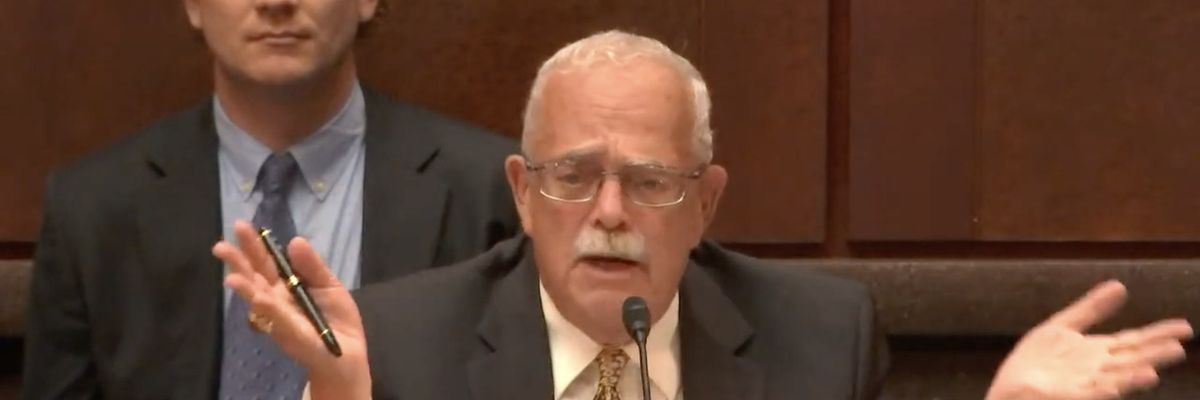During a recent House hearing on “Iran’s escalating threats,” a Democratic lawmaker completely dismantled all the myths opponents of diplomacy peddle about Iran and its nuclear program.
The hearing was dominated by hawkish voices on Iran, who urged for increasing pressure and spurned any diplomatic engagement. The only exception was Suzanne Maloney from the Brookings Institute, who took a more moderate stance.
The other witnesses, especially Behnham Ben Taleblu, from the Foundation for the Defense of Democracies, a hardline “pro-Israel” think tank that often pushes militaristic approaches to U.S. foreign policy, called for a more confrontational U.S. stance by triggering the “snapback” of UN sanctions in October, a move that would likely drive Iran to the edge of a nuclear breakout and spark a major nuclear crisis.
Taleblu also lambasted what he said is the Biden administration’s “overall risk aversion” in response to Iranian regional intervention, which he said amounted to “signaling irresolution” to Iran. He cited several incidents where he claimed the U.S. failed to enforce what he called “deterrence by punishment.” He said they deserved a “kinetic response” (a euphemism used by the DC Blob to mean military strikes), arguing that these events eroded the perception of “American willingness to use force in general.”
Against this backdrop, one of the most striking moments of the hearing was when Rep. Gerry Connolly (D-Va.) exposed the flaws and fallacies of Taleblu’s arguments by eliciting the expert testimony of Maloney, a scholar on Iran and its politics. Connolly skillfully used a series of questions to highlight how the 2015 nuclear deal, known as the Joint Comprehensive Plan of Action (JCPOA), had successfully curbed Iran’s nuclear program and ensured its compliance, before it was recklessly abandoned by the Trump administration in 2018. He also challenged the notion that a military solution was viable or desirable for the U.S., especially when Israel, one of the most vocal opponents of the JCPOA, had refrained from using it when it had better options.
Connolly dismantles the hawkish myths about the JCPOA
Connolly started by asking Maloney if there was ever a peaceful solution that had rolled back Iran’s nuclear program and prevented it from reaching the threshold of a nuclear weapon. Maloney confirmed that this was achieved by the JCPOA, and added that Iran’s compliance was verified by the IAEA and by Trump’s own State Department. “Iran was complying with the JCPOA,” she said.
She also said that if the deal had been fully implemented, and if there had been an opportunity to negotiate a follow-on agreement, as “everyone who was involved in the deal had hoped,” then the U.S. would be “in a much stronger position with respect to Iran’s proximity to nuclear weapons capability.”
Maloney added: “We have far worse options today than we had in 2015 or we did in 2018 when President Trump exited from the deal.”
Connolly then turned his attention to one of the most vocal opponents of the JCPOA before it was implemented: Israel’s Prime Minister Netanyahu. He recalled how Netanyahu had bypassed President Obama and addressed a joint session of Congress in 2015, arguing that the JCPOA was so vital and so dangerous that it superseded politics.
He asked Maloney whether Netanyahu had been concerned about Iran’s nuclear threat when he first took office as prime minister, and whether he had the ability to launch a military strike against Iran then. Maloney admitted that Israel had better options then than it does now, but had refrained from attacking Iran.
Connolly wondered why some people were eager to advocate for a U.S.-led military option now, when Netanyahu himself had not used it when he had a better chance. He said that it would be much more complex, difficult, and costly for the U.S. to attack Iran now. Maloney agreed that this was “a fair statement.”
Connolly concluded by saying that the U.S. had to consider the consequences of its actions:
“It’s something we have to consider, and we have to take responsibility for the past. A lot of the people who opposed JCPOA were proved wrong, they didn’t cheat, they complied, it was verified by IAEA and by the Trump administration itself, and we walked away from it. We did that. Not Russia. Not Iran. And we need to take some responsibility for that and try to repair some of the damage we caused.”
Watch:
The Iran Hawks’ Agenda: Sabotaging Diplomacy and Pushing for War
Connolly exposed the Iran hawks’ arguments for what they are: a collection of lies, distortions, and contradictions that aim to sabotage diplomacy and drag the U.S. into another unnecessary and costly war.
The fact that hawks like Taleblu and FDD continue to advocate for more pressure and military confrontation with Iran, despite the dismal failure of their approach, reveals their true agenda: they want to destroy any chance of peaceful resolution and force the U.S. into a confrontation that would serve only the interests of neoconservatives and the right-wing Israeli government. We need more courageous politicians like Connolly to stand up to their warmongering and defend diplomacy as the only sensible way forward.
















